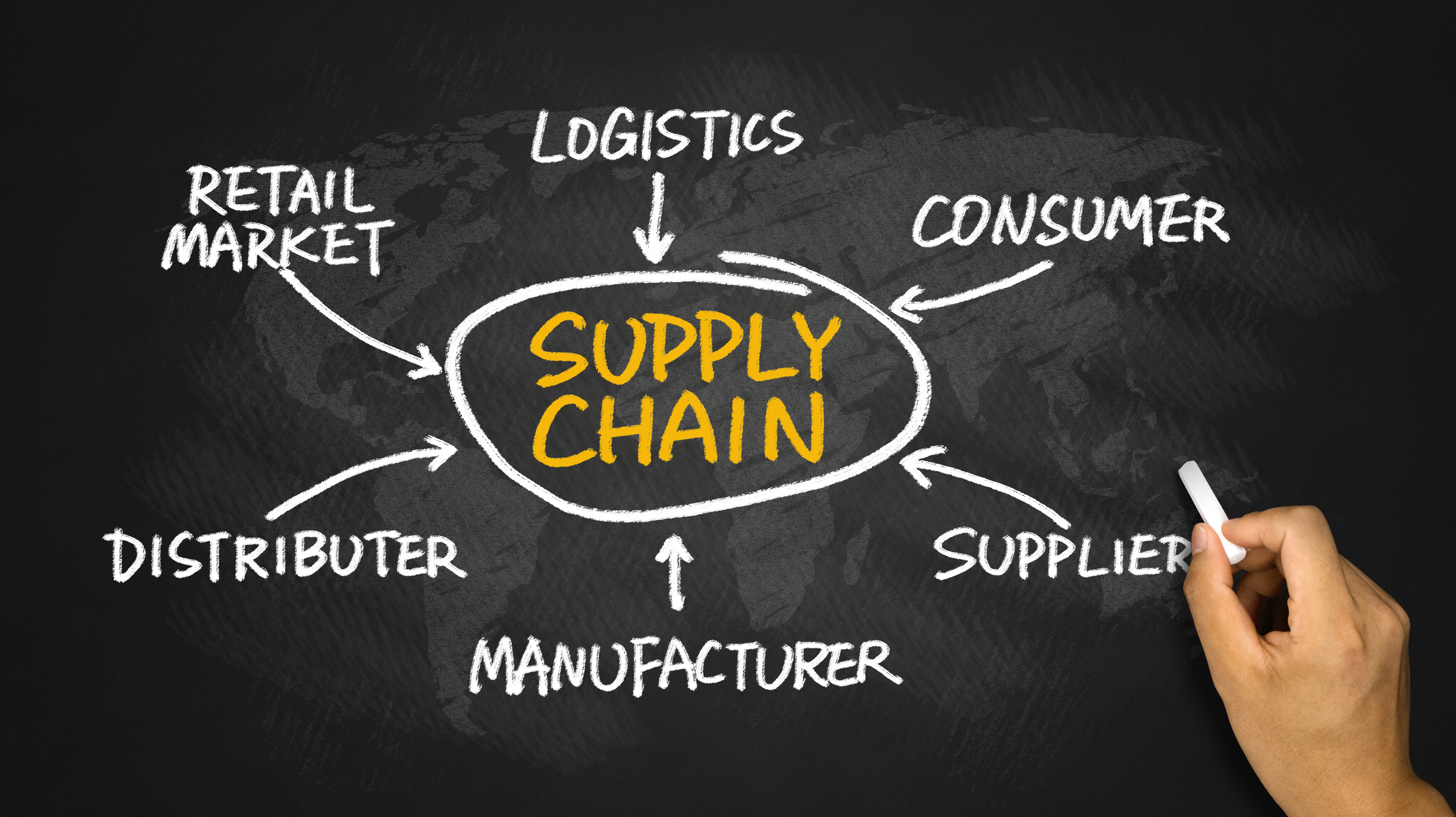
supply chain concept diagram hand drawing on chalkboard
In commerce, the logistics and supply chain industry involves a system of organisations, individuals and activities that work together to supply products and services to customers. The sector is responsible for the transformation of raw materials, natural resources and other vital components into finished products, and delivering them to customers and end-users.
The functions of the logistics and supply chain industries may seem simple, but in most cases, multiple businesses must work together to achieve the desired outcomes. These businesses are vital in ensuring that products are effectively made and efficiently distributed to consumers.
To understand how the logistics and supply chain industry works, listed below are some of the types of businesses involved in the process:
Freight Companies
Freight companies are businesses which focus on moving goods from one location to another. While some large freight companies specialise in international shipments, others only offer domestic services.
A trucking company is a major type of freight business that collect, transport, and deliver goods from Point A to Point B. Depending on the type, size, and quantity; freight companies can move goods via air, sea, road and rail lines. Small and new startup freight companies usually offer one transportation option, while others provide two or more, to meet a range of consumer needs.
Freight Forwarders
Freight forwarders play an essential role in the logistics industry. Unlike freight companies that move goods from different locations, freight forwarders work by finding the most affordable and efficient way to move goods. Freight forwarders collaborate with a wide variety of freight companies to negotiate and arrange the transportation of goods. Freight forwarders utilise the space and capacity of other transport companies, but they don’t move the products themselves. This type of company is frequently used when transporting goods internationally as freight forwarders work with a large variety of transport companies to find the best costs and services for their clients.
Some of the most common responsibilities of freight forwarders are:
- Compiling and submitting the necessary documents for customs: Completion of documentation is essential to ensure that goods aren’t held or confiscated once they arrive in ports following their transport via sea, land or air. Freight forwarders also make sure that the paperwork for the import and export of goods is prepared ahead of time, which ensures the seamless transportation and delivery of goods.
- Rate negotiation: Negotiating with carriers ensures businesses only pay the best rates when they move goods and deliver them to customers. Freight forwarders usually have access to numerous service providers around the world, making it easy for them to negotiate and bargain for the best rates.
- Coordination of freight handling and delivery: Freight forwarders must coordinate the complexities of the delivery process on behalf of businesses, so all goods are received by consumers efficiently and in tiptop condition. They also monitor the progress of deliveries.
Consider freight forwarders as the bridge between businesses and freight carriers. Most freight forwarders have years of experience in the logistics and supply chain industry and have typically fostered strong professional relationships with the companies involved in the process. If you’re planning to start a business that sends goods, freight forwarders can save you a lot of time and money.
Freight Carriers
Freight carriers are companies that earn profits by moving products using different modes of transportation. Carriers will receive goods and then deliver them to end customers, often via multiple means of transport. Some of the most common freight carriers include ocean carriers, rail services and air freight. There are both international and domestic freight carriers.
Third-Party Logistic Providers Or 3PL’s
Third-party logistic providers (3PLs) exist to provide logistical support to businesses who wish to outsource their logistics. Depending on the needs of the company, third-party logistic providers can offer storage and transportation services, integrate technology into a business’s existing logistics department to help it function better, or even act as a business’s internal logistics department. These companies vary in size and scope of operations; while some 3PLs handle international shipping, others focus on domestic freight management and transportation.
Aside from these factors, third-party logistic providers can also assist businesses in the procurement of goods or products, scheduling of out and inbound deliveries, and ensure that all deliveries move on schedule. Essentially, third-party companies make sure that all facets of logistics are correctly managed, so companies can focus on other areas.
Take Away
Knowing how the logistics and supply chain industry works is essential for any business, particularly for budding entrepreneurs who are planning to start their own company. Learning about these aspects of the industry will make it easy for you to manage your expectations and come up with streamlined strategies to help you stand out from the competition.
